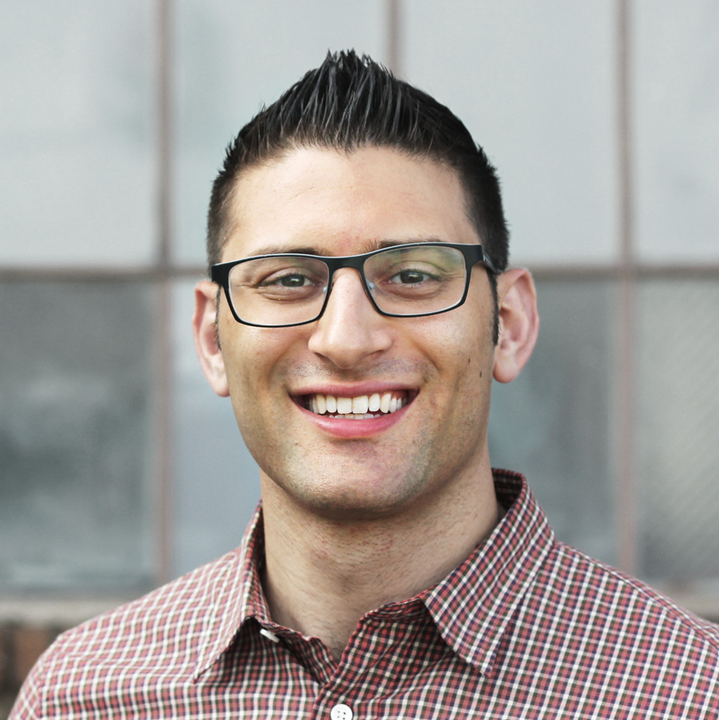There’s a problem in economic development, and Efrem Bycer thinks technology can fix it.
Official economic development efforts, either from city officials or organizations like his former employer, aren’t available to everyone who could benefit most from them, he says.
Instead, cities make their resources available to the biggest employers or the most high-profile industry leaders. Economic development programs generally benefit executives who know how to work them or companies so large that cities bend over backwards to assist them preemptively.
“Economic development managers and economic development corporations become really important, because they give companies access to expediting things, handholding, advocacy work… stuff that not everyone gets,” said Bycer, former economic development manager at the San Diego Regional Economic Development Corporation.
As for the little guys – they’re often out of luck. But Bycer says it doesn’t have to be that way.
“My goal is we can democratize that access, that process through technology,” he said.
Bycer, the newly-hired economic development director for Code for America, says it might look like this.
Imagine a community-level push to revitalize a blighted commercial stretch of a neighborhood.
An entrepreneur who might open a small business there and provide a boost to the community will inevitably wander into a maze of business license requirements, zoning restrictions, health inspections and all the other basic requisites to open something as simple as a corner store.
Each step in that process could create a lengthy and expensive delay if it isn’t handled just right. But even a little guidance and assistance could ensure those delays never happen.
“That’s not the day-to-day action that EDCs or economic development managers get involved in,” Bycer said. “That’s information (normal people) are not getting access to, simply because they didn’t know who to ask.”
Technology could help fill the void by providing guidance through the regulatory process, Bycer said.
Bycer envisions a world in which, after answering just a few questions within an app or website, would-be business owners could receive guidance through the steps needed to open up shop.
Finding simple, digital solutions to these sorts of problems is why Code for America was created. And the geek squad for improving civic life is thriving: its budget has grown from roughly $3 million in 2011 to roughly $10 million last year.
Economic development-focused initiatives aren’t new territory for the nonprofit group. Some of its most successful apps fall under that umbrella.
Open Counter, for instance, is already operating in Santa Cruz, Calif. It helps entrepreneurs register a business by walking them through the fees, requirements and processing times they’ll face before establishing themselves.
Twenty-six cities are already testing out ZoningCheck. Its goal is to make it significantly easier for an interested resident to learn about the zoning restrictions on a given property.
And Primer Peso, in beta testing in Puerto Rico, puts all potentially available economic incentives in one easy-to-navigate place.
They all align with Bycer’s vision of making expedited and simplified government services available to all business owners, rather than just those savvy enough to know who to talk to.
Bycer himself doesn’t have a background in tech. He was hired for his expertise in economic development, not what he can tell programming teams about how to best build their apps.
One piece of practical knowledge he learned while with the San Diego EDC is that – in any city – most big initiatives require the input of a few key players to get off the ground. The problem is, those players change a bit in any given place.
“In some places, that can be the elected side,” he said. “In others its key people outside government. In some places it happens in the bureaucratic side. Knowing how to work those things is really important.”
That will be part of his role in helping each class of the company’s fellowship program – this year, it’s 24 technologists working on projects in 8 cities – make their digital products as successful as possible.
Hiring Bycer to lead its economic development efforts is part of a new layer of organization for Code for America this year.
The organization has divided its effort into three, broad categories: safety and justice, economic development and health and human services.
Projects from members of the fellowship program or from its more than 100 volunteer brigades around the country will generally be placed into one of those three categories.
Rebecca Coelius, a medical doctor, runs the health and human services efforts, including apps like EBTNearMe, which helps users of electronic phone stamps and benefits find places they can use their card without a surcharge. Another app, called Clean, simplifies the process for California residents to apply for food stamps.
Jenny Montoya Tansey runs the safety and justice team, which builds projects like AddressIQ, intended to identify the properties that most frequently call 911 in order to improve how police emergency officials respond. Another app, Courtbot, allows residents to text their citation number and get information about their upcoming court dates or required court payments.
The hope is not only that Code for America can be more purposeful about where it directs its efforts but that the organization will benefit from having practical expertise in each field.

